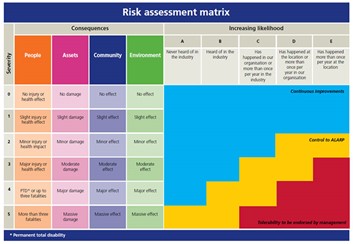
Understanding and Mitigating Business Risks
Introduction:
Effective risk assessment is crucial for businesses aiming for sustainable success. In this article, we delve into the importance of risk evaluation and strategies for mitigating potential challenges.
The Significance of Risk Assessment:
Identifying Potential Threats
Accurate risk assessment involves identifying potential threats that could impact the business. This includes market fluctuations, regulatory changes, and external factors beyond the company’s control.
Operational Risks
Operational risks encompass challenges related to internal processes, systems, and personnel. Assessing these risks helps streamline operations and enhance overall efficiency.
Financial Risks
Financial stability is paramount for any business. A comprehensive risk assessment considers factors such as cash flow, economic trends, and investment strategies to ensure financial resilience.
Strategies for Effective Risk Mitigation:
Diversification of Investments
One way to mitigate financial risks is through the diversification of investments. This strategy spreads risk across different assets, reducing the impact of a downturn in any particular sector.
Implementing Robust Cybersecurity Measures
With the increasing reliance on digital platforms, businesses face cybersecurity threats. Implementing robust cybersecurity measures is essential to safeguard sensitive data and maintain customer trust.
Continuous Monitoring and Adaptation
Risk assessment is not a one-time process. Businesses must adopt a proactive approach by continuously monitoring the business environment and adapting strategies based on emerging risks.
The Role of Leadership in Risk Management:
Creating a Risk-Aware Culture
Leadership plays a pivotal role in fostering a risk-aware culture within the organization. This involves promoting transparency, encouraging open communication, and providing resources for risk management training.
Developing Contingency Plans
Effective leaders understand the importance of having contingency plans in place. These plans outline steps to be taken in response to identified risks, ensuring a swift and organized response when challenges arise.
Conclusion:
In conclusion, proactive risk assessment and management are integral components of a successful business strategy. By identifying and mitigating potential risks, businesses can navigate uncertainties and position themselves for long-term growth and resilience.
Learn more about risk assessment here.